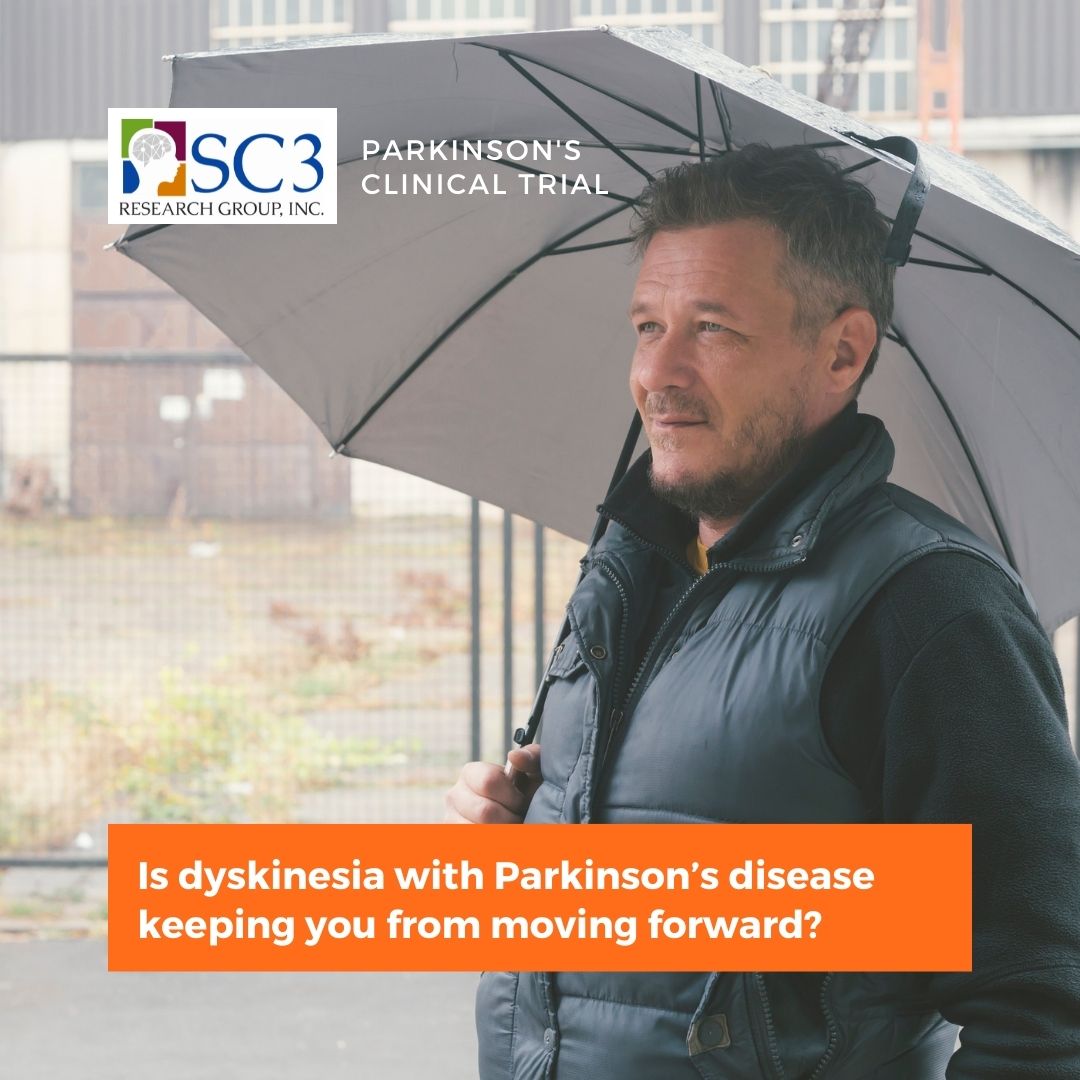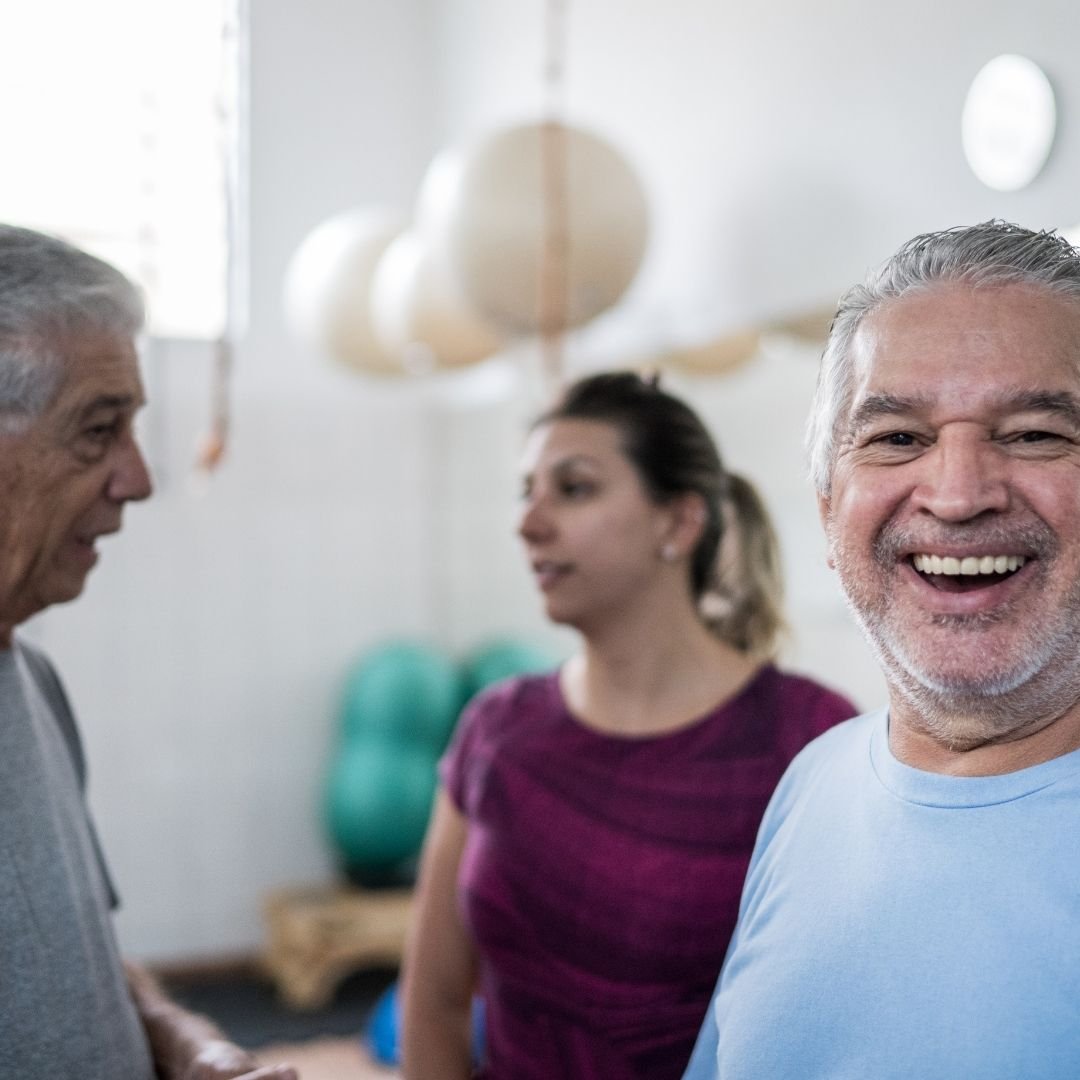Dyskinesia in Parkinson's Disease Clinical Trial
Be part of the study that is designed to accelerate the development of a new treatment option for Parkinson’s disease patients suffering from dyskinesia.

Dyskinesia in Parkinson's Disease
The standard of care for Parkinson’s disease is treated with dopamine replacement therapies such as Levodopa or dopamine agonists. However, in the advanced stages of Parkinson’s disease, patients treated with dopamine replacement therapies often suffer from dyskinesia.

More than 10 million people worldwide are living with PD.

Most patients are diagnosed between the ages of 40 and 60. Some develop dyskinesia.
.png)
As with every aspect of Parkinson’s, there is variability in dyskinesias

Treatments for dyskinesia are being developed, making research vital.
With your help, we can meet medical and clinical research needs to get more efficient drugs to treat Parkinson’s dyskinesia.
About the Study
The aim of the study is to test an investigational drug (JM-010) in patients who have PD with dyskinesia.
JM-010 was developed as an innovative approach to accelerating the development of new treatment options for Parkinson’s disease patients suffering from dyskinesia.
JM-010 acts as a dual molecular switch by which the target efficacies of two existing and safe medications are perfectly fine-tuned to effectively treat the disease. Using a proprietary formulation, JM-010 targets central mechanisms underlying the development of dyskinesia in Parkinson’s disease. JM-010 has successfully demonstrated its efficacy and safety in preclinical studies, as well as in Phase 1 clinical safety and Phase 2 clinical proof of concept studies. Currently, JM-010 is undergoing Ph2 clinical studies in Europe and US and is looking for participants in sites near you.

Need clarification?
What is a clinical study?
A clinical study is conducted to learn whether a study drug is effective and safe for people who have certain illnesses. Clinical research studies, also known as clinical trials, follow strict scientific standards to help patients and doctors with healthcare decisions.
What’s the purpose of the the dyskinesia clinical study?
Dyskinesia is muscle movement that you can’t control and is often found in people with Parkinson’s disease (PD). It can look like fidgeting, wriggling, restlessness, body swaying, or head bobbing. More severe cases can interfere with daily activities or may be painful.
Dyskinesia is usually caused by the medication (levodopa) that people with Parkinson’s disease take to keep themselves
mobile and active. In fact, dyskinesia occurs most often when other Parkinson’s symptoms, such as tremor and stiffness, are well controlled.
This clinical study is testing an investigational drug to find out if it can help control dyskinesia in people with Parkinson’s
disease who take levodopa medication.
How long can I participate?
Your study participation may last about 6 to 11 weeks for study Part 1 and 15 to 20 weeks in total for study Part 2. You will have regular visits with the study doctor during that time. The study staff will work with you to find convenient times for these visits. You may choose to leave the study at any time for any reason.
Why should I take part inthis study?
Some study volunteers are interested in gaining access to new drugs or treatments. Other study volunteers want to help advance science. If you participate in this clinical study, you could help doctors learn more about the treatment of dyskinesia and shape future treatment options. You’ll also receive all study drugs and study-related medical care at no cost.
What happens if I volunteerfor this clinical study?
Before you agree to join this study, the study doctor will explain the study procedures and answer any questions you have. To participate, you must read and sign an informed consent document to show that you understand the study and what is required of you. The study doctor and staff will give you some tests to make sure that you’re eligible to participate. If eligible, you’ll receive the study drug — either the investigational drug or placebo — in the form of a tablet that you’ll take with your levodopa medication for up to 3 weeks for study Part 1 and 12 weeks for study Part 2.
For more information about the study:
Please visit the BK-JM-201 study page on ClinicalTrials.Org.
If you have problems accessing the website or have questions regarding the study please contact the research team via email (roxanne.cabading@neurosearch-usa.com) or phone (16262502070)
